Related Research Articles
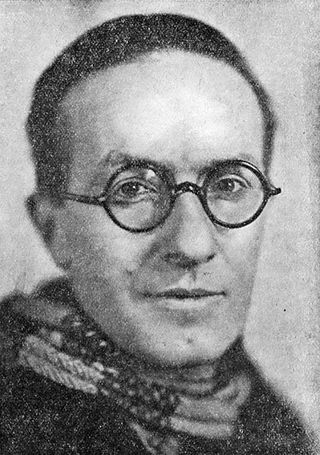
Hippolyte Jean Giraudoux was a French novelist, essayist, diplomat and playwright. He is considered among the most important French dramatists of the period between World War I and World War II.
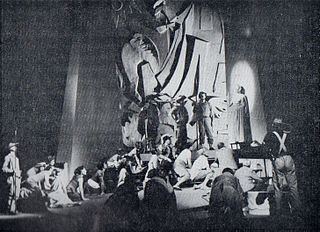
The Trojan War Will Not Take Place is a play written in 1935 by French dramatist Jean Giraudoux. In 1955 it was translated into English by Christopher Fry with the title Tiger at the Gates. The play has two acts and follows the convention of the classical unities.

Bellac is a commune in the Haute-Vienne department in the Nouvelle-Aquitaine region in western France.
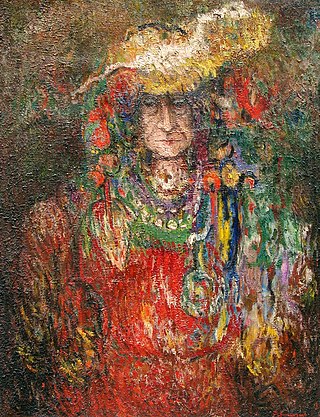
The Madwoman of Chaillot is a play, a poetic satire, by French dramatist Jean Giraudoux, written in 1943 and first performed in 1945, after his death. The play is in two acts. The story concerns an eccentric woman who lives in Paris and her struggles against the straitlaced authority figures in her life.

Amphitryon 38 is a play written in 1929 by the French dramatist Jean Giraudoux, the number in the title being Giraudoux's whimsical approximation of how many times the story had been told on stage previously.
Song of Songs is an English adaptation of the play Cantique des Cantiques written in 1938 by the French dramatist Jean Giraudoux.

Electra is a two-act play written in 1937 by French dramatist Jean Giraudoux. It was the first Giraudoux play to employ the staging of Louis Jouvet. Based on the classic myth of antiquity, Electra has a surprisingly tragic force, without losing the spirit and sparkling humor that made Jean Giraudoux one of the most important playwrights of the mid twentieth century.
L'Impromptu de Paris is a play written in 1937 by French dramatist Jean Giraudoux.
The Enchanted is a 1950 English adaptation by Maurice Valency of the play Intermezzo written in 1933 by French dramatist Jean Giraudoux.

Judith is a play written in 1931 by French dramatist Jean Giraudoux. French composer Darius Milhaud wrote incidental music for the play.

Ondine is a play written in 1938 by French dramatist Jean Giraudoux, based on the 1811 novella Undine by the German Romantic Friedrich de la Motte Fouqué that tells the story of Hans and Ondine. Hans is a knight-errant who has been sent off on a quest by his betrothed. In the forest he meets and falls in love with Ondine, a water sprite who is attracted to the world of mortal man. The subsequent marriage of people from different worlds is, of course, folly.
Duel of Angels (1963) is an English-language adaptation by Christopher Fry of the play Pour Lucrèce (1944) by French dramatist Jean Giraudoux. The play is based on the story of Lucretia, the virtuous Roman housewife who was raped and, finding no support from her husband and his friends, is driven to suicide. This is the same legend that was used by Shakespeare in The Rape of Lucrece. Giraudoux gives the Roman legend a new locale, setting his drama in nineteenth-century Aix-en-Provence in southern France.
Siegfried is a play written in 1928 by French dramatist Jean Giraudoux, adapted from his own 1922 novel, Siegfried et le Limousin. The novel had launched Giraudoux's literary career, and the play based upon it established his reputation as a playwright. "It [Siegfried] marked the beginning of a productive, lifelong collaboration with actor-director Louis Jouvet, whom Giraudoux credits with transforming his literary plays into theater pieces."
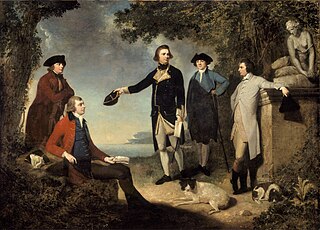
The Virtuous Island is a 1956 English adaptation by Maurice Valency of the play Supplément au voyage de Cook written in 1935 by French dramatist Jean Giraudoux.
Tessa is a play written in 1934 by French dramatist Jean Giraudoux. It is a translation and adaptation of a 1926 stage version by Margaret Kennedy and Basil Dean of the former's 1924 novel The Constant Nymph.
Lucienne Bogaert was a French actress. She started her career in theatre, but later also worked in film. After she divorced her husband Robert Bogaert, she retained his name for professional purposes.
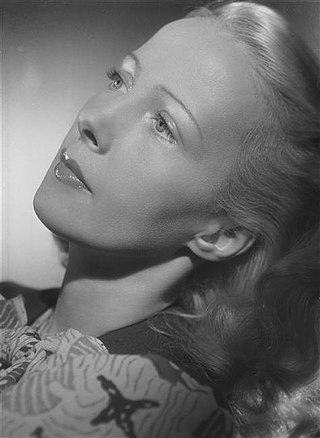
Madeleine Ozeray, was a Belgian stage and film actress. She appeared in many films between 1932 and 1980. She is the godmother of theater actor, dancer and singer Frédéric Norbert.
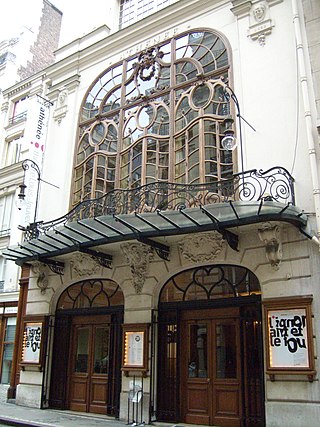
The Théâtre de l'Athénée is a theatre at 7 rue Boudreau, in the 9th arrondissement of Paris. Renovated in 1996 and classified a historical monument, the Athénée inherits an artistic tradition marked by the figure of Louis Jouvet who directed the theatre from 1934 to 1951. During the period when he was director, it became known as the Athenée Théâtre Louis-Jouvet.
Maurice Valency was a playwright, author, critic, and popular professor of Comparative Literature at Columbia University, best known for his award-winning adaptations of plays by Jean Giraudoux and Friedrich Dürrenmatt. He wrote several original plays, but is best known for his adaptations of the plays of others. Valency's version of The Madwoman of Chaillot would become the basis of the Jerry Herman musical Dear World on Broadway.
Michel Etcheverry was a French actor. First a teacher, he was fired in 1941 for refusing to make the Maréchal children sing, here we come!. He began his career in the theater as a stage manager, then joined the troupe of Louis Jouvet.
References
- 1 2 The Times, 13 August 1955; Giraudoux Play On Television "The Apollo Of Bellac"
- ↑ Cohen, Robert Carl (1968). Giraudoux: three faces of destiny. Chicago: Chicago U.P. p. 159. OCLC 422719388.
- ↑ Grossvogel, David I. (1958), 20th Century French Drama, p. 342, Columbia University Press, New York.
- ↑ Giraudoux, Jean (1954). The Apollo of Bellac, adapted by Maurice Valency. New York: Samuel French, Inc.
- ↑ Giraudoux, Jean (1947). L'Apollon de Bellac. Paris: Bernard Grasset.
- ↑ Krauss, Kenneth (2004). The Drama of Fallen France. Albany: State University of New York Press.
- ↑ Inskip, Donald, (1958), Jean Giraudoux, The Making of a Dramatist, p. 182, Oxford University Press, New York.
- ↑ David Parkinson, ‘Richardson, Cecil Antonio [Tony] (1928–1991)’, Oxford Dictionary of National Biography, Oxford University Press, 2004